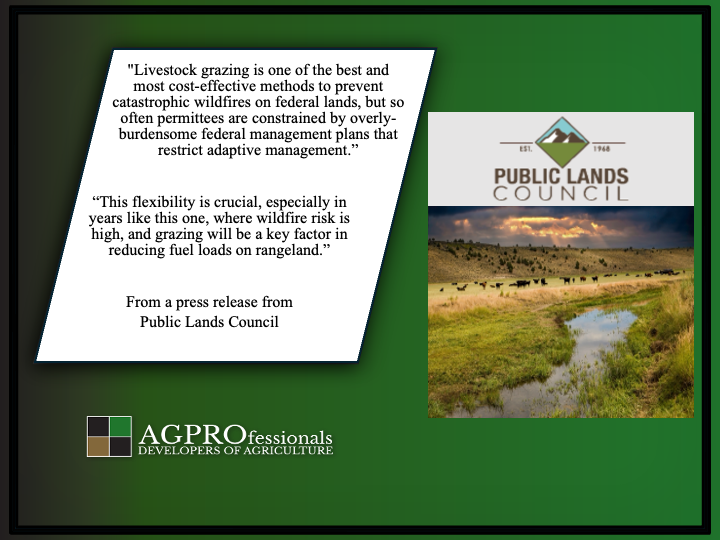Representative John Curtis (R-UT) has introduced the Operational Flexibility Grazing Management Program Act, aimed at providing ranchers with greater flexibility to respond to environmental and market conditions affecting federal lands. Following a successful 2018 pilot program, this legislation seeks to alleviate bureaucratic roadblocks and enhance adaptive management for grazing permittees - including those who aren't participants in the BLM's Outcome Based Grazing program, but still need flexibility in grazing permit administration.
The bill expands and codifies the 2018 BLM Pilot Program, increasing flexibility for approved grazing permittees to respond to shifting environmental conditions and emergencies like drought and wildfire. For example, the bill allows BLM and permittees to work together to create a more flexible permit administration that allows permittees universal access to a 14-day variance on on/off dates, flexibility in range improvement work, and other necessary changes. Like so many of the efforts PLC supports, the bill also emphasizes the need for robust cooperative monitoring. For bill text, click here.
Rep. Curtis emphasized the bill's importance in enabling ranchers to adapt quickly to environmental challenges, thus protecting their livestock and livelihoods. Kaitlynn Glover, PLC Executive Director, highlighted the bill's role in reducing wildfire risks through flexible grazing management:
"Livestock grazing is one of the best and most cost-effective methods to prevent catastrophic wildfires on federal lands, but so often permittees are constrained by overly-burdensome federal management plans that restrict adaptive management. This legislation ensures that federal lands ranchers are able to adapt their plans based on on-the-ground conditions and apply the best possible management to the landscape. This flexibility is crucial, especially in years like this one, where wildfire risk is high, and grazing will be a key factor in reducing fuel loads on rangeland. Thank you to Rep. John Curtis and the bipartisan coalition of lawmakers supporting this bill, making it easier for ranchers to do their jobs and protect our natural resources."
This legislation, with nearly 70% of Utah's public lands federally owned, aims to support ranchers by recognizing their role as stewards of these lands, ensuring productivity, and maintaining sustainability. Senators John Barrasso (R-WY) and Ron Wyden (D-OR) have referred the Senate version of the bill to the Senate Committee on Energy and Natural Resources.
Link: HERE

